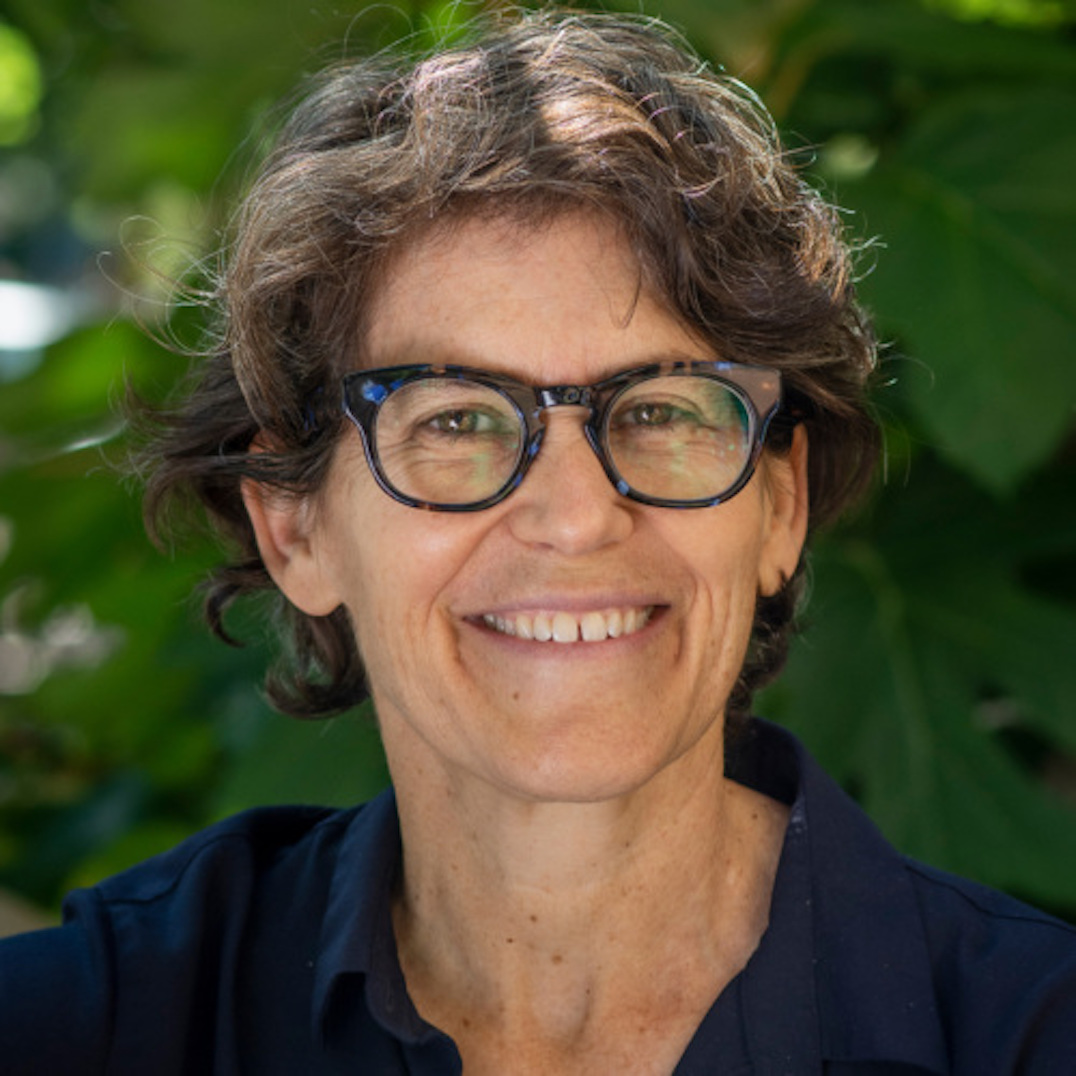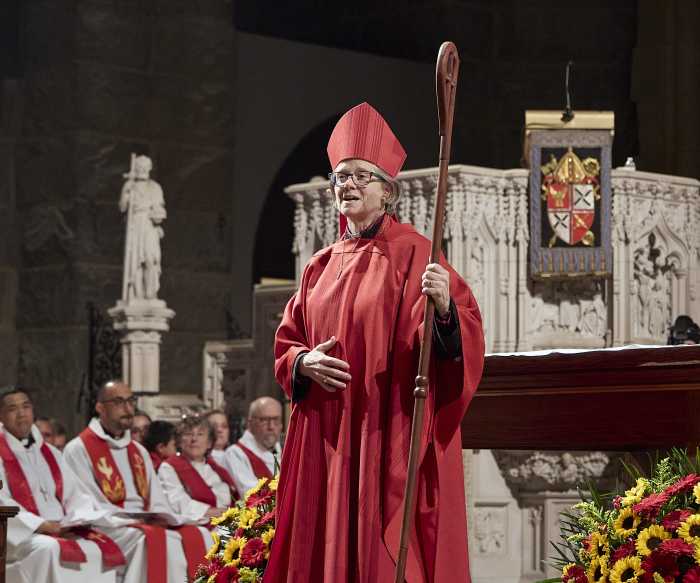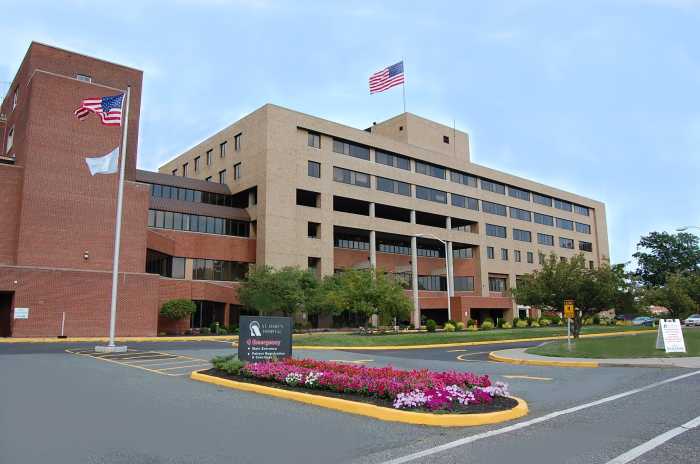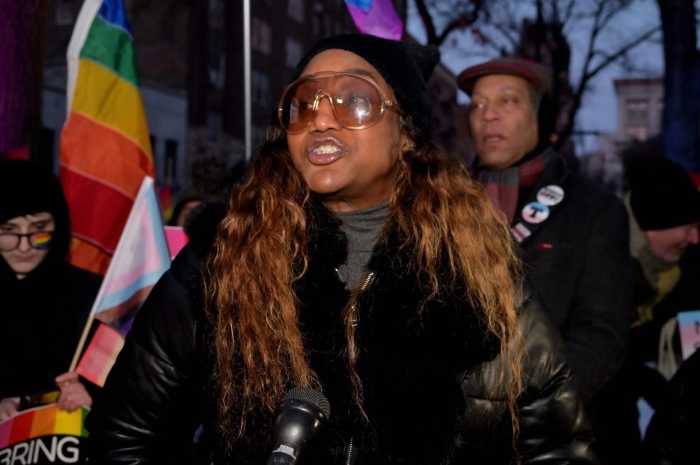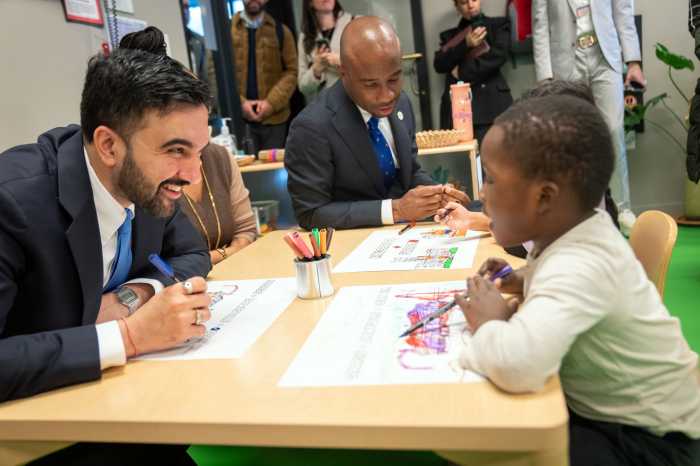Rachel Timoner, the senior rabbi of Congregation Beth Elohim in the Park Slope section of Brooklyn, recalls Hamas’ Oct. 7 attack on Israel as “the hardest moment this generation of Jews has ever witnessed.”
Timoner, an out lesbian, leads a progressive synagogue which includes members who lost family on that day and others whose family members are still held hostage more than three months later. Congregation Beth Elohim also includes many members and rabbis who identify as part of the LGBTQ community, she said.
Timoner has, in recent months, guided her members through a tumultuous time period during which the war between Hamas and Israel, compounded by the simultaneous rise of antisemitism and intense public debate, has taken its toll on the synagogue, which was recently vandalized.
“Every member of my community has experienced a shocking amount of antisemitism,” Timoner said.
In mid-October, Timoner penned an op-ed in the New York Times in which she called on Jewish people experiencing antisemitism to keep being themselves in the face of adversity — “Please do not stop living as proud Jews,” she wrote — and she underscored a message of peace.
“Any agenda that promotes a future for just one people on the land, either Palestinian or Israeli, is inhumane and immoral,” she added.
In an interview with Gay City News, Timoner elaborated on the war and its local impact, from the rise of antisemitism to calls for a cease fire in the face of the growing death toll in Gaza, where more than 25,000 people have died, according to reports. Many people, Timoner said, have felt pressure to be fully pro-Israel or pro-Palestinian in her progressive community in Brooklyn.
“That binary has been incredibly stifling for this congregation who wants to see a future in which both people are safe and both are free and both people have self-determination,” she said. “It’s really important for a lot of members to articulate a reaction that was caring about both people — the lives of Israelis and Palestinians — and caring about the rights and the future of those people.”
More than three months after the initial attack, members of Congregation Beth Elohim have been engaged in efforts to give back to people in need. The synagogue set up a partnership with a small community where everything was destroyed on Oct. 7 and more than 60 people died, Timoner said, leaving many people displaced with nowhere to go. Other members, she said, are contributing to separate humanitarian efforts in the region.
The congregation’s close connection to the hostages means the crisis hits especially close to home. Earlier this month, Timoner spoke at a vigil outside of the United Nations to mark 100 days since the hostages were taken and to call for their return home. She said there is a feeling shared by many people that the general population has moved on — that people have stopped thinking about the hostages like they did at the beginning of the war.
“”The feeling… is just incredibly isolating for Jews,” Timoner said.
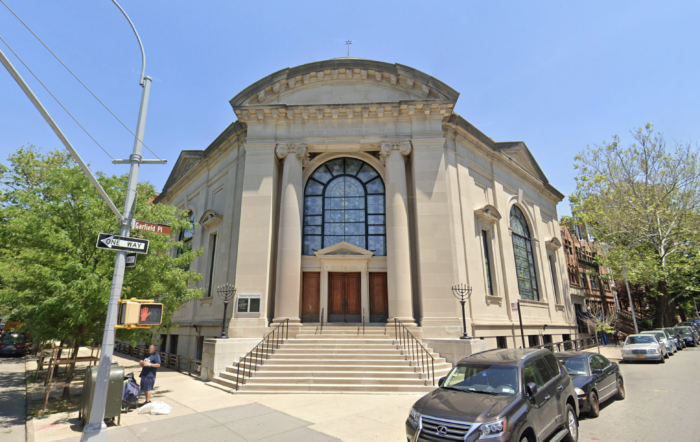
Over the course of recent months, Timoner has witnessed the evolution of the war — and that has changed her own perspective. At first, she said she supported the Israeli military’s response to the attack. Any other country on Earth, she insisted, would respond militarily to such a brutal attack against its people.
“I thought Israel had a right to defend itself and had a responsibility to defend its people,” she said. But Timoner cautioned that she also called for restraint and care in avoiding the deaths of innocent people.
“That is not what happened, and Israel’s response has been, as the Defense Ministry said, more focused on destruction than accuracy, and that’s not OK,” she said, describing it as a “violation of international law” while also forcefully condemning Hamas. (In October, an Israel Defense Forces spokesperson said Israel was “focused on what causes maximum damage,” according to The Guardian.) Timoner expressed further dismay, saying the Israeli military “has killed large numbers of civilians.”
Israel’s government, Timoner said, must prioritize the safe return of hostages, which requires coming to the negotiating table.
“In late December, I called for an immediate negotiated end to the war in exchange for hostages,” she said.
There have been widespread calls for a cease fire — including from the National LGBTQ Task Force, which called for one earlier this month and said “the genocide in Gaza and violent attacks in Israel and Palestine must end.” Timoner said she finds it “disturbing” that people are primarily calling on Israel, not Hamas, to agree to a unilateral cease fire.
“Hamas is the one who broke the last cease fire,” she said.
Timoner believes it is important to see a future in which both Palestinians and Israelis are safe, free, and have self-determination. But in the meantime, she wants individuals to navigate the crisis without turning to polarization, including members of the LGBTQ community, who she said “tend to be on the left, more so than non-LGBTQ Americans.”
“For the LGBTQ Jewish person, right now requires us to see complexity, to hold complexity, and sometimes the desire is to just make the world simple and paint the picture as good guys and bad guys and pick one side and hate the other,” Timoner said.
Echoing her own calls for a human-centered approach, Timoner said anyone looking closely at the conflict must understand that both Jewish people and Palestinian people have a place in the future of the region.
“There is no future for that land that is peaceful and humane that only champions one side, and you have to care about that,” she said.

